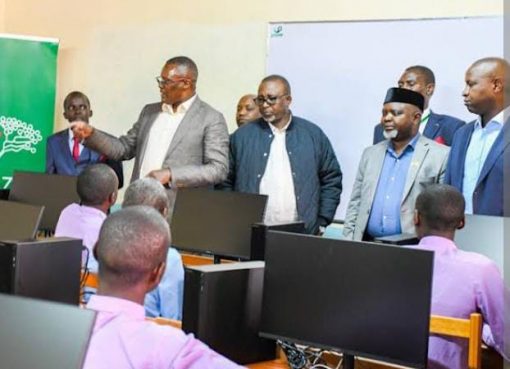The high vulnerability of women to climate change in developing countries has brought together 17 countries in Nairobi to deliberate on gender responsive interventions in tackling the situation.
According to United Nations Development Programme (UNDP), women in developing countries remained highly vulnerable to climate change because of high dependency on natural resources for their livelihoods, and gender inequalities which makes them continue loosing land, livelihoods and security.
The countries attending the three-day participatory and interactive Global Gender Workshop on Nationally Determined Contributions (NDCs) Planning for Implementation include Kenya, Bhutan, Colombia, Chile, Costa Rica, Cote D’Ivoire, Ecuador, Ghana, Guatemala, Lebanon, Nepal, Philippines, Paraguay, Peru, Uganda, Vietnam and Zambia.
The UNDP convened the workshop to provide the participants an opportunity for sharing of experiences, lessons learnt and way forward on gender-responsive NDC planning and implementation, with the aim of influencing institutional frameworks and coordination mechanisms, sectoral and national planning, and implementation of climate change policies.
Speaking at the workshop, UNDP Resident Representative, Ms. Amanda Serumaga said UNDP’s NDC Support Programme is currently piloting the integration of gender equality considerations into countries’ NDCs and climate action plans for the Paris Agreement.
“Women are powerful agents of change as they play important roles in core sectors affected by climate change and are therefore well-placed to identify and adopt appropriate adaptation strategies and mitigation techniques,” said Serumaga.
She said the on-going process and review of countries’ climate action plans provided a valuable entry point for
integrating gender equality considerations, through identification of gender data gaps, improvement of coordination
mechanisms and development of gender indicators.
“This workshop expects to use key opportunities and challenges on integrating gender equality into NDC planning and implementation from several national contexts while simultaneously strengthening partnerships, increasing understanding of relevant entry points to advance gender equality and women’s empowerment into the NDCs process,” added Serumaga.
She at the same time, noted that the countries would also be required to improve their understanding of the NDC and Sustainable Development Goals connection to increase climate change ambition and broaden development outcomes.
To advance collaboration between national governments and other stakeholders in tackling climate change, UNDP in collaboration with Government of Kenya is hosting the 17 countries that are mainstreaming gender equality in their national climate actions and strategies in promoting gender equality and women’s leadership in national climate action.
The NDC Support Programme is helping countries advance integrated climate and development solutions through the implementation of the Paris Agreement on Climate Change. The programme was launched in 2017 at the UN Climate Summit (COP23), by UNDP, together with the European Union and the Governments of Germany and Spain.
The mission of the NDC Support Programme is to bring about a real and positive change for living and future generations by advancing ambitious progress towards resilient, zero carbon development.
It also supports countries to formulate a systemic, integrated approach through governance and policy frameworks,
inclusive leadership, transparency systems, blended climate finance and implementation of NDC objectives.
By Bernadette Khaduli



